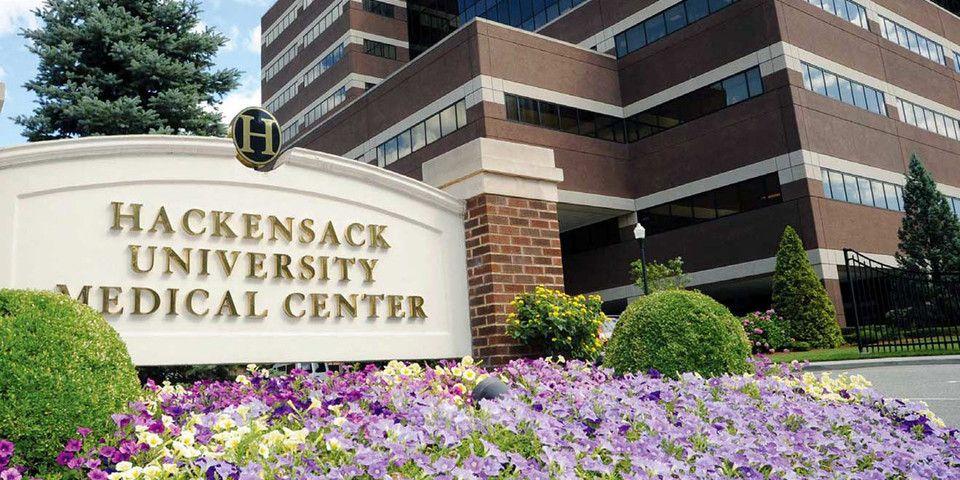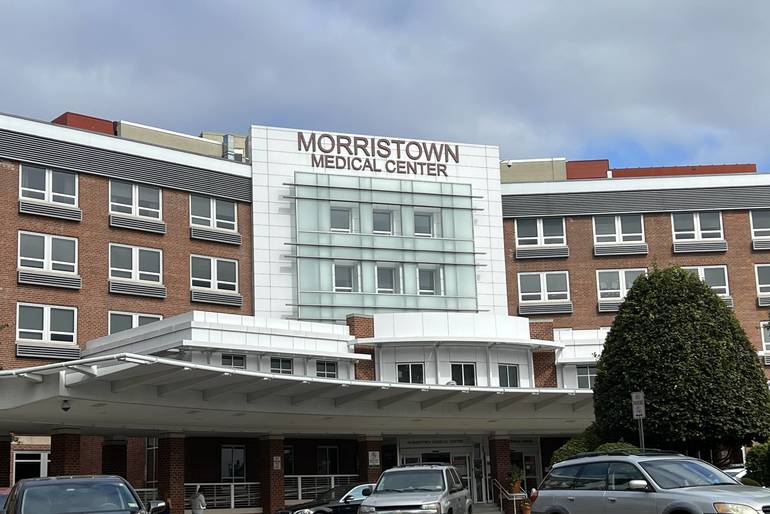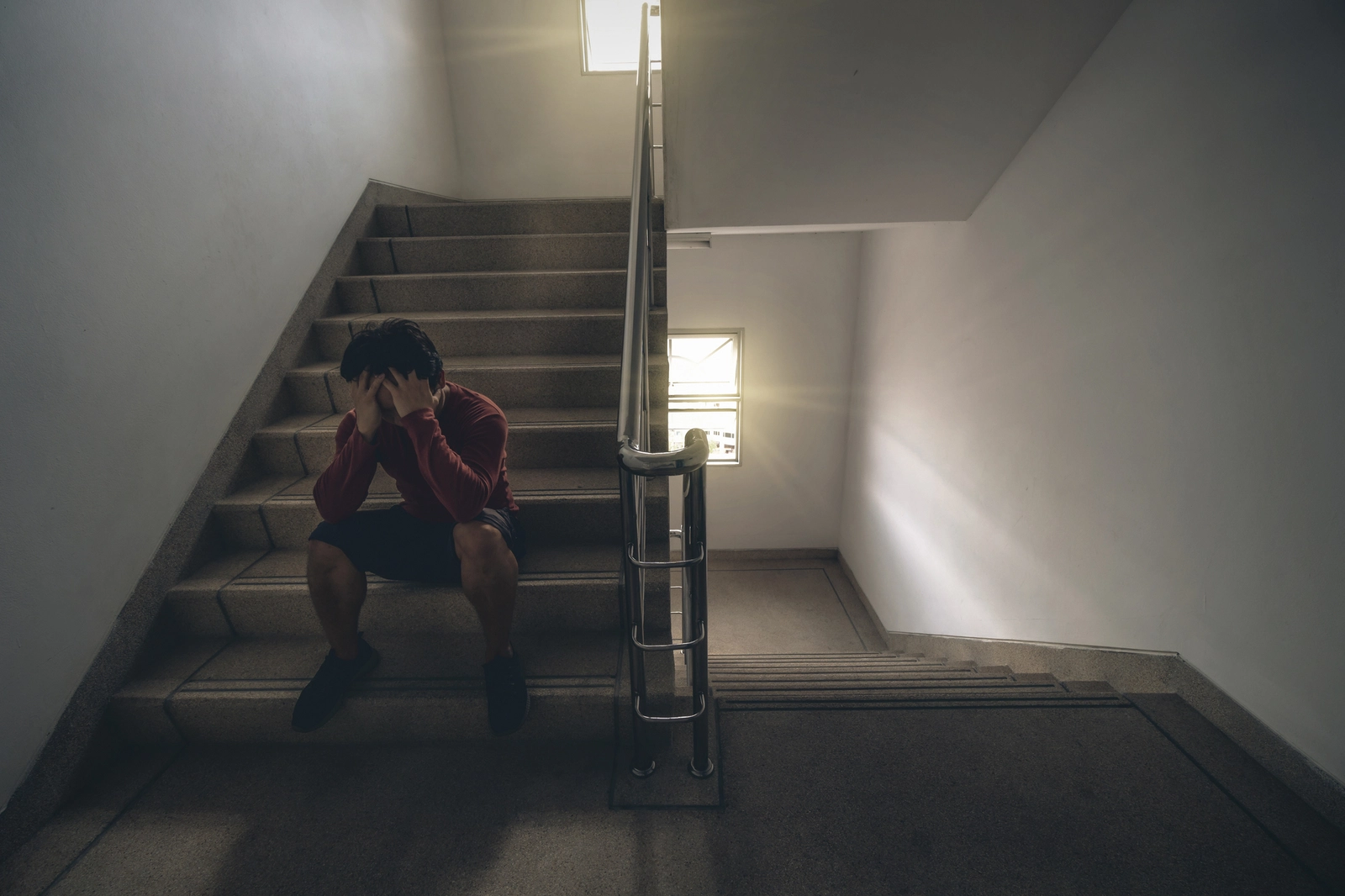Recovery Resources and Drug Treatment Centers New Jersey Trusts
Local Resources & Information to Start Your Healing Journey

Help Is Available for Those Struggling With Addiction in New Jersey
In the midst of New Jersey’s vibrant communities, countless individuals and their loved ones are confronting the challenges of addiction.[1] From the bustling streets of Newark to the serene shores of Cape May, getting help and starting your recovery isn’t just a possibility—it can be your reality. With a wealth of treatment centers, support groups, and compassionate professionals dedicated to guiding you toward healing, the journey to sobriety in New Jersey is filled with promise and possibility.

How Do You Know If You Need Professional Help?
Asking for help with drug or alcohol issues can be daunting. Make no mistake—taking that first step and reaching out is an act of self-empowerment that takes bravery and strength.
Recognizing the need for professional help with substance use can come about in various ways. It may be prompted by ongoing struggles to control your usage, ongoing engagement in risky behaviors, or the emergence of withdrawal symptoms. Observing changes in your mood, social withdrawal, declining physical health, or neglecting once-enjoyed activities can all serve as potent indicators that professional intervention is necessary.
Whether it’s initiating a candid conversation with a loved one or scheduling a consultation with a healthcare provider, the decision to seek help is the pivotal first step on the road to recovery. By acknowledging the presence of addiction and actively pursuing support, you can take control of the story and embrace the possibility of a brighter, sober future.

How and Who Can I Ask For Help?
When it comes to asking for help with addiction, there are various avenues and individuals you can turn to for support:
- Family and friends: Trusted loved ones can offer understanding, encouragement, and practical assistance as you navigate the challenges of addiction. Opening up to family members or close friends about your struggles can help alleviate feelings of isolation and provide a strong support network to lean on.
- Healthcare professionals: Seeking guidance from healthcare professionals is essential in addressing addiction effectively. Your primary care physician can offer medical advice, perform assessments, and provide referrals to specialized addiction treatment centers or professionals.
- Therapists: Licensed therapists, counselors, or psychologists specializing in addiction treatment can offer individualized therapy sessions to address underlying issues contributing to substance abuse. Therapy provides a safe space to explore emotions, develop coping strategies, and cultivate resilience on the path to recovery.
- Addiction specialists: Board-certified addiction specialists, including psychiatrists and addiction medicine physicians, possess specialized knowledge and training in treating substance use disorders. They can offer comprehensive assessments, medication management, and evidence-based treatment approaches tailored to your specific needs.
- Community resources: Local community organizations, religious institutions, or nonprofit agencies may offer addiction support services, counseling, or educational programs. These resources provide additional avenues for seeking help and connecting with others on the journey to recovery.
- Helplines and hotlines: National or local helplines and hotlines staffed by trained professionals are available to offer immediate support, guidance, and resources for individuals struggling with addiction. These confidential services can provide crisis intervention, information on treatment options, and referrals to local support services.
Types of Addiction Treatment in New Jersey
In New Jersey, people seeking addiction treatment have access to a range of comprehensive care options tailored to their specific needs. These include:[2]
By offering residents a full continuum of care, New Jersey’s addiction treatment providers strive to address the diverse needs of its citizens struggling with substance use disorders, supporting them on their journey toward long-term recovery and sobriety.
How to Choose the Right Drug Rehab Center for Your Loved One in New Jersey
Choosing the right drug rehab center for your loved one in New Jersey is a crucial decision that can greatly impact their journey to recovery. Here are some best practices to consider when selecting a rehab facility:
-
Assess your treatment needs
Evaluate your or your loved one’s specific treatment needs, including the severity of the addiction, the presence of co-occurring mental health disorders, and any preferences for treatment modalities or approaches. Look for rehab centers that offer specialized programs tailored to address these needs, such as dual diagnosis treatment for co-occurring disorders.
-
Verify your insurance coverage
If you have health insurance, verify the coverage and benefits for addiction treatment. Consider choosing a rehab center that is in-network with their insurance provider to minimize out-of-pocket costs and maximize coverage for treatment services.
-
Consider the proximity to your home
Proximity to the city or town where you or your loved one resides can play a significant role in admissions and transportation logistics. Choosing a rehab center located nearby can make it easier for family members to visit, participate in therapy sessions, and provide support during treatment.
-
Evaluate the center’s treatment approach
Research the treatment approach and philosophy of the drug and alcohol rehab center to ensure it aligns with your loved one’s preferences and beliefs. Some rehab centers may focus on evidence-based practices, while others may incorporate holistic therapies or alternative modalities. Choose a facility that offers a treatment approach that resonates with your loved one.
-
Assess the services offered
Consider the amenities and services offered by the rehab center, such as comfortable accommodations, recreational activities, nutritional services, and aftercare planning. These additional features can contribute to a supportive and nurturing environment conducive to recovery..
Discover Our New Jersey Treatment Guides Closest To Your Home
Continuing Recovery Care & Sober Living Programs in New Jersey
The recovery process is always ongoing—which is why it’s so important to access ongoing, continual care once your primary substance abuse treatment has been completed. These ongoing programs are pivotal in bridging the gap between the structured environment of residential treatment and the challenges of returning to everyday life.
Alumni programs play a central role in maintaining your connections and engagement within the local recovery community. By providing opportunities for ongoing support, participation in support groups, and access to resources, these programs cultivate a sense of belonging and accountability with your peers. Alumni engagement serves as a powerful tool for reinforcing sobriety goals and promoting long-term success.
New Jersey residents also have access to a variety of sober living options tailored to meet their needs and preferences as they transition back to daily life. Sober living homes (such as Oxford Houses) and premium sober living residences provide varying levels of structure and support to individuals seeking a safe and supportive environment for continued recovery.[3]
Contact Admissions Today

Emergency Services for Addiction in New Jersey
While addiction treatment facilities provide comprehensive care, access to emergency resources can be critical during urgent situations. Local hospitals operate around the clock, offering emergency care and facilitating connections to nearby treatment facilities. Additionally, region-specific hotlines serve as valuable resources for individuals seeking assistance during moments of distress.
In the event of a suspected overdose or substance-related emergency, please dial 911 or proceed to the nearest emergency room for immediate assistance.

Cooper University Hospital
One Cooper Plaza (for GPS use 246 S 6th St,) Camden, NJ 08103
Open 24 hours

University Hospital Emergency Medicine
150 Bergen Street Newark, NJ 07103
Open 24 hours a day

Newark Beth Israel Medical Center
201 Lyons Avenue at Osborne Terrace Newark, NJ 07112
Open 24 hours a day

AtlantiCare Emergency Department
1925 Pacific Avenue Atlantic City, New Jersey 08401
Open 24 hours

Capital Health Regional Medical Center
750 Brunswick Avenue Trenton, NJ 08638
Open 24 hours
Robert Wood Johnson University Hospital Hamilton
1 Hamilton Health Place Hamilton, NJ 08690
Community Resources for Mental Health & Addiction
- ReachNJ has established a dedicated hotline available 24/7 to streamline access to support and treatment services across the state. Call 1-844-732-2465 to receive immediate assistance, regardless of your financial circumstances
- 211 New Jersey: Dial 211 or visit their website to connect to a resource specialist and a list of current substance use treatment providers
- Call or text 988 to access the new National Suicide and Crisis Lifeline in New Jersey
- State of New Jersey Addiction Services Treatment Directory
- State of New Jersey Narcan (Naloxone) access and training information: Narcan can administered to reverse the effects of opioid overdose
- Veterans Crisis Line: Dial 800-273-8255, option 1

Local Stats You Need to Know
In 2021, New Jersey saw 3,056 overdose deaths, reflecting the severity of the opioid crisis and substance abuse epidemic across the state. From 2011 to 2021, the state saw a notable increase in drug overdose death rates on the whole, rising from 11.3 per 100,000 to 32.4 per 100,000.[4] This mirrored the US on the whole, which experienced a parallel surge during the same period, with drug overdose death rates climbing from 13.2 to over 30 per 100,000.
In response to the escalating crisis, substance use disorder treatment providers in New Jersey reported significant engagement in addressing addiction. In 2022 alone, there were 85,266 treatment admissions reported to the New Jersey Department of Human Services, Division of Mental Health and Addiction Services, which represents good overall progress—but much more work remains to be done to address the addiction crisis across the state and the nation.[5]
Start Your Recovery in New Jersey
Start your recovery journey in New Jersey and discover the support and resources you need to achieve lasting sobriety and wellness.
How to pay for Addiction Treatment in New Jersey
Paying for addiction rehab treatment in New Jersey can seem overwhelming, but there are resources and options available to help you access the care you need
-
Insurance coverage
Many individuals in New Jersey have health insurance that may cover some or all of the costs associated with addiction treatment. It’s essential to understand your insurance benefits, including whether the treatment facility you’re considering is in-network or out-of-network. In-network facilities typically have negotiated rates with insurance companies, resulting in lower out-of-pocket costs for policyholders. Out-of-network facilities may still be covered by insurance but at a higher cost to the individual.
-
Medicaid and Medicare
Individuals who qualify for Medicaid or Medicare may be eligible for coverage of addiction treatment services. These government-sponsored programs provide health insurance to low-income individuals and seniors, respectively, and may cover various levels of addiction treatment, including detoxification, residential treatment, outpatient services, and medication-assisted treatment.
-
Local non-profit organizations
There are several non-profit organizations in New Jersey that offer financial assistance or scholarships to individuals seeking addiction treatment. These organizations may provide funding for treatment programs, medication, therapy sessions, or other related expenses. Examples include the Partnership for a Drug-Free New Jersey and the New Jersey Division of Mental Health and Addiction Services.
-
Payment plans
addiction treatment facilities offer payment plans or financing options to help individuals cover the cost of treatment over time. These arrangements allow individuals to pay for treatment in installments, making it more manageable to afford the upfront costs of care.
Navigating the financial aspects of addiction treatment can be complex, but with research, advocacy, and assistance from local resources, individuals in New Jersey can access the care they need to overcome addiction
Frequently Asked Questions About Attending Rehab in New Jersey
Determining insurance coverage for addiction treatment in New Jersey can involve contacting your insurance provider directly and asking specific questions about coverage. Inquire about the types of addiction treatment services covered, such as detoxification, residential treatment, outpatient programs, and medication-assisted treatment (MAT). Additionally, ask whether the treatment facility you’re considering is in-network or out-of-network, as this can affect your out-of-pocket costs. Be sure to ask about any co-pays, deductibles, or limitations on the number of days or visits covered by your insurance plan.
When preparing to attend rehab in New Jersey, it’s essential to pack items that will support your comfort, well-being, and recovery journey. Consider bringing comfortable clothing suitable for various activities and weather conditions, including exercise attire if fitness activities are part of the program.
Personal hygiene items such as toiletries, soap, shampoo, toothpaste, and a toothbrush are also essential. Bring any prescription medications you currently take, along with a list of medications, dosages, and prescribing physicians. It’s helpful to have your insurance information readily available, as well as any necessary identification or documentation requested by the treatment facility.
The duration of addiction treatment in New Jersey can vary depending on individual needs, the severity of addiction, and the type of program. Detoxification programs may last a few days to a week, depending on the substance and withdrawal symptoms. Residential treatment programs typically range from 28 days to several months, allowing individuals to immerse themselves in intensive therapy and support.
Outpatient programs may last several weeks to months, offering flexibility for individuals to attend therapy sessions while living at home. Aftercare or continuing care services may extend beyond the initial treatment phase to provide ongoing support and relapse prevention strategies. Ultimately, the length of treatment should be tailored to meet the individual’s needs and may be adjusted based on progress and recovery goals.
[1] NJ Cares – New Jersey Office of Attorney General. (2021, November 9). New Jersey Office of Attorney General. https://www.njoag.gov/programs/nj-cares/ on April 22, 2024
[2] Center for Substance Abuse Treatment. (2016). Chapter 3. Intensive Outpatient Treatment and the Continuum of Care. Nih.gov; Substance Abuse and Mental Health Services Administration (US). https://www.ncbi.nlm.nih.gov/books/NBK64088/ on April 22, 2024
[3] Oxford House. (n.d.). Www.oxfordhouse.org. https://www.oxfordhouse.org/purpose_and_structure on April 22, 2024
[4] New Jersey Priority Topic Investments | State Snapshots | Budget | Injury | CDC. (2023, February 9). Www.cdc.gov. https://www.cdc.gov/injury/budget/policystatesnapshots/newjersey.html on April 22, 2024
[5] New Jersey Drug and Alcohol Use Treatment Substance Use Overview 2022 Statewide. (2023). https://nj.gov/humanservices/dmhas/publications/statistical/Substance%20Abuse%20Overview/2022/Statewide.pdf on April 22, 2024








